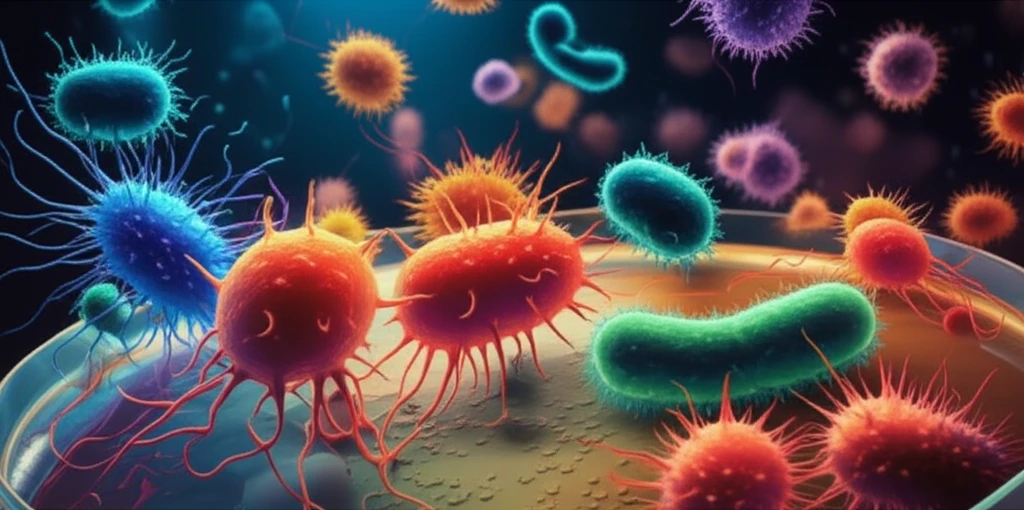
Unlock Nature's Defense: How Fermented Foods Fight Spoilage
"Discover the power of bacteriocins from lactic acid bacteria in keeping your food fresh and safe, offering a natural alternative to chemical preservatives."
In a world increasingly concerned about what goes into our food, natural preservation methods are gaining traction. Consumers are actively seeking products free from synthetic additives, leading researchers to explore the potential of probiotic bacteria and their metabolites. Among these, bacteriocins—naturally produced peptides with antimicrobial properties—stand out as promising tools for enhancing food safety and extending shelf life.
Bacteriocins, produced primarily by lactic acid bacteria (LAB), offer a broad spectrum of activity against spoilage-causing bacteria and foodborne pathogens. These natural compounds provide a way to combat undesirable microorganisms without relying on artificial preservatives. However, because not all bacteriocins are fully understood, they're often referred to as bacteriocin-like inhibitory substances (BLIS) until their characteristics are well-defined.
Recent research has focused on optimizing the production of BLIS by specific strains of LAB, such as Pediococcus pentosaceus. By fine-tuning fermentation processes, scientists aim to maximize the yield and effectiveness of these antimicrobial substances, paving the way for their widespread use in the food industry.
What are Bacteriocins and Why are They Important?

Bacteriocins are peptides—small proteins—produced by bacteria to inhibit the growth of other, similar bacteria. They represent a natural form of microbial warfare, allowing certain bacteria to dominate their environment. Lactic acid bacteria (LAB), commonly found in fermented foods, are particularly well-known for their ability to produce a variety of bacteriocins effective against many harmful microorganisms.
- Natural Preservation: Bacteriocins offer a natural alternative to chemical preservatives, appealing to health-conscious consumers.
- Broad Spectrum Activity: They can inhibit a wide range of spoilage bacteria and foodborne pathogens, enhancing food safety.
- GRAS Status: Many LAB are "Generally Regarded as Safe" (GRAS) by the FDA, making their bacteriocins suitable for food applications.
The Future of Food Preservation
As research continues, the potential of bacteriocins and BLIS in food preservation becomes increasingly clear. By optimizing their production and understanding their specific applications, we can move toward safer, more natural ways to keep our food fresh and protect public health. The ongoing exploration of these antimicrobial substances promises a new era in food technology, where nature itself provides the best defense against spoilage and contamination.
